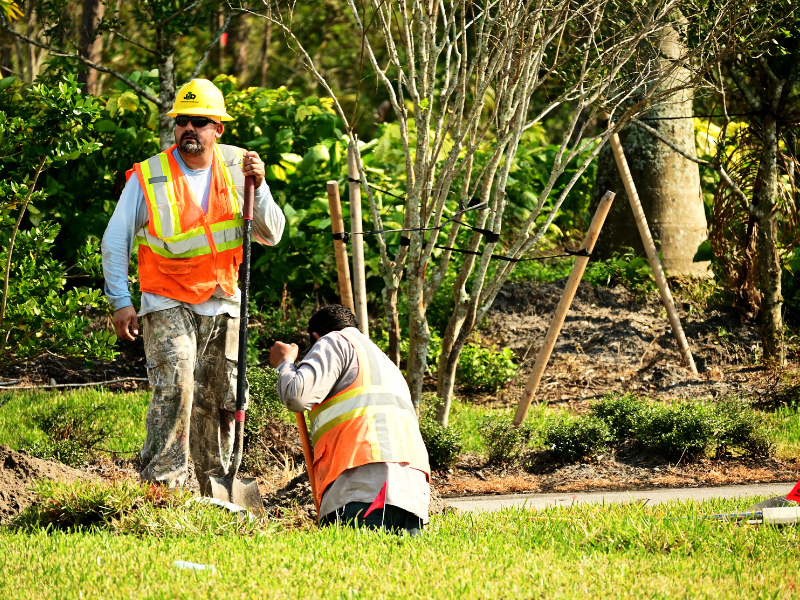Five Workers Comp Benefits for Cleaning Services
Importance Of Workers Compensation For Cleaning Service Companies
Workers compensation is of utmost importance for cleaning service companies due to the inherent risks and physical demands associated with the industry.
Cleaning professionals often face hazards such as slippery surfaces, exposure to chemicals, lifting heavy objects, and repetitive motions that can lead to injuries.
Workers compensation provides a safety net by offering various benefits to both employees and employers. It ensures that injured workers receive appropriate medical treatment, compensation for lost wages, rehabilitation services, and, in unfortunate cases, death benefits.
For cleaning service companies, having workers compensation coverage protects them from potential legal liabilities and financial burdens associated with workplace accidents or injuries.
Overall, workers compensation plays a crucial role in safeguarding the well-being of cleaning service employees and maintaining a secure working environment.
The purpose of this blog post is to highlight and explore five key benefits of workers compensation specifically tailored to the cleaning services industry.
It aims to provide valuable insights into how workers compensation positively impacts both cleaning service employees and the companies they work for.
The blog post aims to enlighten cleaning service professionals about the crucial role of adequate workers’ compensation coverage in safeguarding their well-being.
By highlighting the benefits, we intend to empower you to make informed decisions that can make all the difference!
One: Medical Expenses Coverage
Workers comp provides vital coverage for medical expenses incurred by injured cleaning service workers.
When a cleaning service employee suffers a work-related injury or illness, workers compensation steps in to cover the costs associated with their medical treatment and care.
This coverage typically includes:
- Doctor’s visits: Workers’ compensation pays for the medical consultations and examinations necessary to diagnose and evaluate the injured worker’s condition.
- Hospitalization: If the injury requires hospitalization, workers’ compensation covers the expenses related to inpatient care, including room charges, surgical procedures, medications, and medical supplies.
- Medications and prescriptions: The cost of prescribed medications, pain relievers, and other necessary drugs related to the injury are generally covered by workers’ compensation.
- Rehabilitation services: Workers’ compensation may cover the expenses of rehabilitative treatments, such as physical therapy, occupational therapy, or chiropractic care, which aid in the injured worker’s recovery and help them regain functionality.
- Diagnostic tests: Any diagnostic tests, such as X-rays, MRIs, or lab work, needed to assess and monitor the injured worker’s condition are typically covered by workers’ compensation.
- Assistive devices: If the injury requires the use of assistive devices like crutches, wheelchairs, or prosthetic limbs, workers’ compensation often covers the costs associated with obtaining and maintaining these aids.
It is important to note that the specific coverage details and limits can vary depending on the workers’ compensation laws and policies in each jurisdiction.
However, the primary objective is to ensure that injured cleaning service workers receive the necessary medical attention and treatment without incurring substantial out-of-pocket expenses.
Importance Of Prompt Medical Attention And Its Impact On Employee Recovery And Productivity
Immediate medical attention is crucial for employee recovery and productivity. It not only addresses health concerns but also prevents the condition from worsening.
Prioritizing prompt medical attention demonstrates employer commitment to well-being, enhancing morale and productivity.
Investing in timely medical care leads to faster recovery, reduced absenteeism, and increased productivity, benefiting employees and the organization.
Two: Lost Wages Compensation
Workers’ compensation provides financial assistance to employees who suffer work-related injuries or illnesses.
Benefits include medical expenses coverage, rehabilitation costs, wage replacement and more, allowing employees to focus on healing and rehabilitation, and eventually facilitating their return to work in a timely manner.
Importance Of Lost Wages Compensation For Injured Workers’ Financial Stability
Lost wages compensation plays a crucial role in ensuring financial stability for injured workers. Here are some key points highlighting its significance:
A. Lost wages compensation provides financial support to injured workers, helping them maintain a basic standard of living during their recovery.
B. Injured workers may face overwhelming medical bills. Compensation for lost wages provides income to pay for treatments, medications, surgery, and rehabilitation, preventing financial hardship.
C. Compensation for workplace injuries replaces lost wages, allowing injured workers to focus on recovery without added financial stress, encouraging investment in their health for a successful and speedy recovery.
D. Compensation for lost wages eases the financial burden of workplace injuries, supporting affected workers with future earning losses and other employment challenges.
E. Compensation for lost wages ensures fair reimbursement of injured workers for economic losses incurred from workplace incidents. It helps restore justice and provides a financial safety net when on-the-job accidents happen.
Lost wages compensation is essential for injured workers, providing financial stability, access to medical care, rehabilitation, recovery, and fair compensation for economic loss.
It helps to regain control and promote a sense of security after workplace injury.
Three: Rehabilitation and Vocational Training
Rehabilitation services and vocational training programs are crucial components of workers’ compensation systems.
They aim to help injured workers recover and regain their functional abilities, as well as provide them with the necessary skills to reenter the workforce.
Rehabilitation services include physical and occupational therapy, psychological counseling, pain management, and vocational counseling.
Vocational training programs offer skill development, education assistance, on-the-job training, and job placement assistance.
The availability and scope of these services may vary depending on the jurisdiction and workers’ compensation system in place.
How Workers’ Comp Helps Injured Cleaning Staff Regain Independence & Return to Work
Injured cleaning service workers benefit from financial support, medical treatment, rehabilitation services, vocational assistance, emotional support, and workplace accommodations. These factors aid their recovery, help them regain independence, and return to work:
– Financial Support: Workers’ compensation or disability insurance covers living expenses and medical bills during recovery.
– Medical Treatment: Benefits cover necessary procedures, therapies, and medications to restore functionality and improve health.
– Rehabilitation Services: Physical and occupational therapy, vocational training restore abilities and work-related skills.
– Vocational Assistance: Career counseling, job placement, and skill development help find alternative employment.
– Emotional Support: Counseling and mental health services address psychological impact and maintain well-being.
– Workplace Accommodations: Employers modify tasks, offer flexible hours, or specialized equipment for injury-related limitations.
These benefits address physical, financial, and emotional needs, empowering workers to recover, rebuild skills, and reintegrate into the workforce, reclaiming livelihoods and well-being.
Four: Workers Comp Death and Survivor Benefits
In the event of an employee’s death, workers’ compensation provides coverage to the surviving family members, including death benefits, financial support, eligibility for dependents, additional benefits, and legal considerations.
Its purpose is to offer financial assistance, cover funeral expenses, and ease the burden caused by the loss of income.
Workers’ compensation supports surviving family members of deceased employees through financial assistance and coverage for funeral expenses.
Key points include:
– Death Benefits: Workers’ compensation provides monetary payments to dependents or beneficiaries to compensate for the lost income of the deceased employee.
– Financial Assistance: These benefits, usually a percentage of the worker’s average wage, help maintain the family’s financial stability.
– Funeral Expenses: Workers’ compensation often covers funeral costs, easing the financial burden on the family.
– Claim Process: Surviving family members must file a claim with workers’ compensation authorities, following the required procedures and submitting necessary documentation.
– Legal Assistance: Seeking guidance from legal professionals experienced in workers’ compensation can help navigate the claim process and maximize benefits.
Workers’ compensation’s financial assistance and funeral expense coverage aim to alleviate the family’s financial burden during the grieving process.
How Workers Compensation Protects Cleaning Service Companies from Legal Liabilities
Worker’s compensation provides insurance protection to cleaning service companies and their employees for work-related injuries or illnesses.
It serves as an exclusive remedy, preventing employees from suing their employers for such incidents.
The coverage operates on a no-fault basis, compensating employees regardless of fault. It covers medical expenses and wage replacement, reducing financial burdens on injured workers and minimizing the likelihood of legal action.
By complying with legal requirements and providing worker’s compensation, cleaning service companies safeguard themselves from potential liability and ensure employee well-being.
Worker’s compensation provides cleaning service companies with legal protection, limiting their liability and preventing employees from suing for workplace injuries or illnesses.
It ensures financial security by covering medical expenses and providing wage replacement, reducing the company’s financial burden.
The no-fault coverage prevents lawsuits based on negligence. Offering worker’s compensation boosts employee morale, retention, and productivity.
Compliance with legal requirements avoids penalties and maintains the company’s reputation.
Prioritizing workers’ safety and well-being is crucial in the cleaning service industry.
Ensure your cleaning service company has adequate worker comp coverage for your employees. Contact PEOPayGo today to safeguard your workers’ well-being and protect your business.
Get your quote today!




